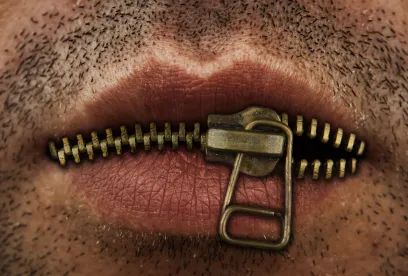In a dispute between an employer and a former employee, the US Court of Appeals for the Seventh Circuit affirmed a district court’s grant of summary judgment against an employer asserting trade secret misappropriation and breach of implied-in-fact contract claims relating to an 11-year-old prototype developed by a former employee. The Court also affirmed the district court’s finding of litigation misconduct by the former employer but vacated the lower court’s award of attorneys’ fees, remanding the case for a more detailed justification for the considerable award. REXA, Inc. v. Chester, Case Nos. 20-2953; -3213; -2033 (7th Cir. July 28, 2022) (Wood, Hamilton, Brennan, JJ.)
Mark Chester is a former employee of Koso America, a manufacturer of hydraulic actuators. Chester participated in a 2002 project at Koso that sought to develop a new flow matching valve for Koso’s actuators. While the project team failed to design a new flow matching valve, they did manage to develop an experimental prototype of an actuator with solenoid valves. Koso abandoned the new design because of the improbability of commercial success, and the prototype was disassembled. Chester—who had never signed a confidentiality or employment agreement with Koso—resigned from Koso in 2003 and later joined MEA Inc. in 2012. In 2013, 11 years after developing the Koso prototype, Chester helped MEA design a new actuator with solenoid valves and an improved motor. MEA filed a patent application in 2017 claiming the actuator, and the US Patent & Trademark Office issued a notice of allowance in 2018 based on the improved motor limitations.
REXA, a successor company to Koso, sued Chester and MEA for misappropriation under the Illinois Trade Secrets Act (ITSA) and for breach of an implied-in-fact contract. REXA alleged that MEA and Chester misappropriated the 2002 designs by filing the 2017 patent application and by incorporating the 2002 designs into MEA’s Hawk brand actuator, and that Chester breached an implied-in-fact obligation to assign any patent rights associated with the 2017 application to REXA. Chester and MEA accused REXA of improper conduct during discovery after REXA appended a confidentiality agreement that Chester had never received to Chester’s 2002 bonus letter and used the manipulated document during Chester’s deposition. The parties filed cross motions for summary judgment. The district court ruled for Chester and MEA and awarded them almost $2.4 million in attorneys’ fees for REXA’s litigation misconduct. REXA appealed.
Misappropriation of Trade Secrets
The Seventh Circuit first considered the trade secret misappropriation claim, specifically whether REXA had identified a trade secret with enough specificity. The ITSA requires that a plaintiff “present a specific element, or combination of elements, that is unknown to the trade and was allegedly misappropriated.” Applying this standard, the Court found that REXA had not identified any protectable trade secrets because it had broadly asserted that the “2002 designs” qualified as trade secrets without explicitly identifying an element that was not well known in the industry.
The Seventh Circuit further concluded that even if REXA had identified a specific and protectable trade secret, Chester and MEA would not be liable for misappropriation. With respect to the patent application, the Court reasoned that it was uncertain whether the 2002 prototype would have met the improved motor limitations of the allowed claims, and that REXA’s allegations were founded on “a series of untenable inferences.” The Court also noted the following points:
-
Eleven years had passed between Chester’s work on the Koso prototype and his work on the MEA actuator.
-
Chester never saw the source code or test results for the prototype.
-
Chester did not take any prototype documentation from Koso.
The Court similarly concluded that Chester had not misappropriated a trade secret by developing MEA’s Hawk actuator because the prototype and the MEA actuator were significantly different, and it was inconceivable that Chester could have retained knowledge of source code (that he never saw) for more than 11 years.
Implied-in-Fact Contract
Turning to the contract claim, the Seventh Circuit acknowledged that an implied-in-fact contractual obligation can be enforced by successors-in-interest like REXA, but nonetheless concluded that Chester had not breached an implied-in-fact contractual obligation to assign his patent rights to REXA. If an employer specifically directs an employee to develop a particular machine or process during the employee’s employment, the employer is the owner of any resulting inventions. The Court noted that Koso had not directed Chester to make a solenoid valve actuator. Instead, Koso had requested a new flow matching valve. As a result, REXA was not entitled to Chester’s patent. REXA also alleged that Chester had breached an implied contractual duty of confidentiality, but the Court swiftly dismissed the claim as precluded by the ITSA, which abolished all common law causes of action based on misuse of confidential information.
Attorneys’ Fees
The Seventh Circuit considered whether the lower court had abused its discretion by awarding almost $2.4 million in attorneys’ fees to Chester and MEA. The Court observed that it was extremely improbable that REXA had combined the confidentiality agreement and bonus letter by accident because REXA had used the misleading document in an attempt to trick Chester into admitting he had received the confidentiality agreement (when he had not). According to the Court, this conduct was sufficient to support a finding of litigation misconduct and sanctions. Nevertheless, the Court vacated the attorneys’ fees award because the district court did not adequately address REXA’s objections to the award based on excessive and improper attorney billing. The Court remanded the case to allow the district court to justify its decision to grant such a substantial award.



 />i
/>i
